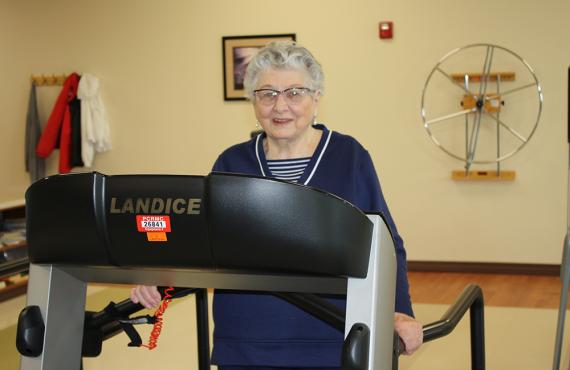Published on January 26, 2024

Read Time: 4 Minutes
Three Things to Know
- Chest pain can result from various conditions, including heart attack, heartburn, angina and panic attacks.
- Heart attack symptoms can include pressure/tightness in your chest; pain radiating to your arms, jaw or back; cold sweat; fatigue; lightheadedness; nausea; and shortness of breath.
- Other conditions have similar symptoms to heart attacks, but differ in key ways. Heartburn pain worsens after eating, angina comes and goes, and panic attacks typically subside within minutes.
By Stilianos Efstratiadis, MD
Phelps Health
Having chest pain can be a symptom of many conditions, some more serious than others. Chest pain is a common sign of a heart attack but also can be caused by heartburn, angina and panic attacks.
So, how can you tell if your chest pain is heart-related or caused by something else? Learn the difference among common causes of chest pain.

What is a heart attack and its symptoms?
A heart attack occurs when the blood flow to your heart is severely reduced or blocked. The blockage is usually due to a buildup of fat, cholesterol and other substances in the heart (coronary) arteries.
Common heart attack symptoms include the following:
- Chest pain that may feel like pressure, tightness, squeezing or aching
- Pain or discomfort that spreads to your shoulder, arm, back, neck, jaw, teeth or sometimes the upper part of your stomach
- Cold sweat
- Fatigue
- Heartburn or indigestion
- Lightheadedness or sudden dizziness
- Nausea
- Shortness of breath
What are signs of a “mini” heart attack?
In a “mini” heart attack, known as a non-ST elevation myocardial infarction (non-STEMI), blood flow to your heart is partially blocked. Symptoms of these mild heart attacks are similar to heart attacks with a full blockage, but the damage to your heart is less severe.
What is angina and its symptoms?
Angina is chest pain that comes and goes. Stable angina, which is the most common type, is caused by coronary artery disease. Rest and medication can ease this type of angina and improve your quality of life.
If you have severe or unexpected angina, these may be signals of a heart attack, and it means you need immediate medical care.
Signs you may have angina include the following:
- Pressing, squeezing or crushing pain usually in your chest under your breastbone that may also occur in your upper back, both arms, neck, earlobes or jaw
- Pain radiating in your arms, shoulders, jaw, neck or back
- Shortness of breath
- Weakness, fatigue or feeling faint
What is heartburn and what are symptoms of this condition?
Heartburn is a burning sensation that feels like it’s in your heart. However, the feeling is actually in your esophagus, the swallowing tube that runs alongside your heart. Acid refluxing up from your stomach into your esophagus causes heartburn. Antacids can treat heartburn.
Symptoms of heartburn include a burning sensation in your chest that mostly occurs after eating and/or at night. With heartburn, you may notice an acidic taste in your mouth and that the feeling gets worse by bending over or lying down.
What is a panic attack and its symptoms?
A panic attack is a sudden episode of intense fear that triggers severe physical reactions when there is no real danger or clear cause. When panic attacks occur, you might think you're losing control, having a heart attack or even dying.
Signs you may be having a panic attack include the following:
- Pounding or raising heartbeat
- Sweating or chills
- Trembling
- Difficulty breathing
- Weakness or dizziness
- Numb hands
- Chest pain
Although they share some similar symptoms, panic attacks and heart attacks are different medical conditions. Panic attacks are often triggered by mental or emotional stress while heart attacks happen when something blocks the blood flow to your heart.
The chest pain in a panic attack will completely go away in a few minutes once the attack passes. If you're having a heart attack, the pain may change in intensity but usually won't let up.
What should you do if you have unexplained chest pain?
If your chest pain is new, changing or otherwise unexplained, seek help from a healthcare provider. If you think you're having a heart attack, call 911 or visit your local emergency department.
A heart attack is often diagnosed in an emergency setting. If you're able to answer questions, you may be asked about your symptoms and medical history. A heart attack diagnosis includes checking your ECG (electrocardiography), blood pressure, pulse and temperature. Tests are done to see how your heart is beating and to check your heart health.
If you've had or are having a heart attack, your care team will take immediate steps to treat your condition.
Find a Trusted Provider for Your Heart
Stilianos Efstratiadis, MD, or “Dr. E,” is a board-certified interventional cardiologist at Phelps Health. To make an appointment with Dr. E, call the Heart and Vascular Center at (573) 308-1301, or learn more about Dr. E at phelpshealth.org.

